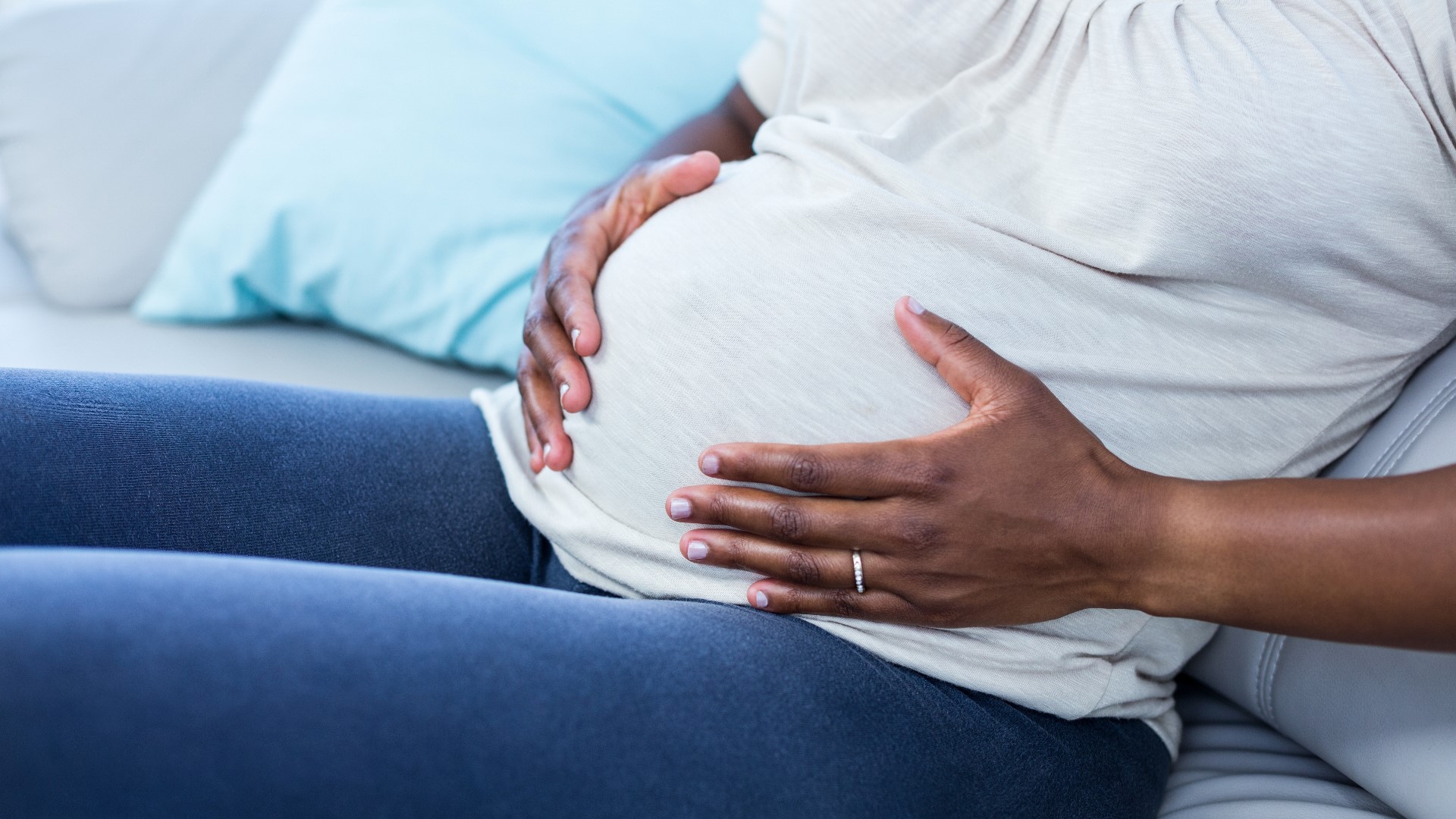INDIANAPOLIS — Women in Indiana are facing major barriers to having healthy babies and getting support while pregnant. That's according to the #AskTheWomen Project, a new research study Initiated by the Grassroots Maternal & Child Health Initiative, through the IU Fairbanks School of Public Health.
The bottom line, it shows, pregnant Hoosiers and new moms need a lot more help. And right now, public policies aren't measuring up.
The study reveals serious gaps in support for pregnant women in Indiana, just as Indiana lawmakers restrict access to abortion, potentially leading to more women carrying pregnancies to term.
RELATED: Experts warn 'life of the mother' exceptions for abortion could still punish women, doctors
Specifically, the project highlighted problems with health care, housing and in the workplace.
"We're struggling! And we need help and there's no help available," explained Tia Washum, Grassroots Maternal & Child Health Leader.
"Someone I think literally said, 'I feel like nobody cares. I'm home with this baby and nobody cares,'" added Erin Macey, a Grassroots Maternal & Child Health senior researcher who spearheaded the #AskTheWomen Project.
For the study, researchers interviewed a racially and geographically diverse group of Hoosier women about pregnancy and parenthood.
The participants were people who live in areas with high maternal and infant mortality rates. Indiana, as a state, ranks near the bottom nationwide in both categories.
Still, researchers say the results of this project were stunning.
Out of 30 women interviewed, nearly all shared stories of struggle. Many faced major challenges on the job or in school.
A lack of accommodations for pregnant women, which could lead to poor health outcomes, was quite common.
"One woman who shared her story, she had a baby in the NICU, in the NICU, and they failed her out of community college," Macey said. "Another, the doctor said, 'You have to stop working right now.' She worked in a factory. It was physically demanding. And the doctor said, 'If you don't stop working, you're gonna lose this baby.' What is she supposed to do?"
"Why didn't you just take off?' She said, 'I can't! I can't take off. Who would be supporting my family?'" Washum said.
"I was really surprised how many women shared stories with us of being pushed out of their workplace, being refused bathroom breaks. Or preterm labor and being hospitalized and then being slammed with late fees on rent and nearly evicted, so they're having to turn to short-term lenders' to fill in that gap or becoming homeless," Macey said.
Health care itself had barriers too: both cost and access to care.
"Some of our rural counties, they don't have a place to go where there's a trusted OBGYN who can serve them. They're three hours from care," Macey said. "We had participants who had $10,000 hospital bills. I mean, who's going to bear all these costs, right? It's going to be the woman."
Researchers did share their study in testimony at the Statehouse last week, hoping to effect systemic change and get more money for support for women.
"There are some who listen...and there are some who don't," Macey said.
They fear challenges for healthy moms and babies may now rise again, with the recently-passed legislation.
"I think the point is we weren't doing a good job before," Macey said. "If anything, this is even more reason to step up to the plate."
"Those are the things we want to bring out to let people know that we need help," Washum added. "We need to stand with each other so this can somehow get better."
More help is coming, however. Among the things that came out of the special session was legislation allocating $42 million to programs like the Nurse Family Partnership, Child Care Development Fund, Safety PIN program, Safe Haven baby boxes and Real Alternatives.
An additional $45 million is being allocated to the newly created Hoosier Families First Fund, which allows the state the flexibility to add funds to programs that help support healthy pregnancies and families.
The legislation also increases the adoption tax credit to $2,500 for each eligible child and creates a $3,000 income-tax exemption for each adopted dependent. This exemption is on top of the normal $1,500 exemption for all dependents.

